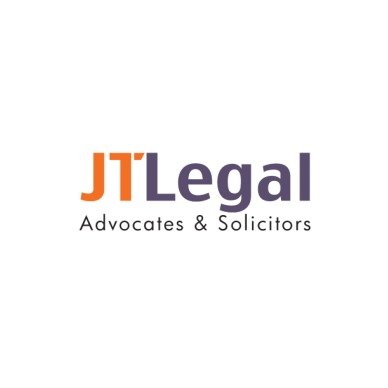Best Acquisition / Leveraged Finance Lawyers in Marina
Share your needs with us, get contacted by law firms.
Free. Takes 2 min.
List of the best lawyers in Marina, Singapore
About Acquisition / Leveraged Finance Law in Marina, Singapore
Acquisition and leveraged finance law in Marina, Singapore refers to the legal framework guiding the financing of business acquisitions, particularly where borrowed funds are used to acquire companies or assets. Leveraged finance usually involves obtaining significant loans, often with the acquired assets or company acting as collateral. Marina, a key business district in Singapore, is home to local and international banks, private equity firms, and multinational companies, making it a hub for complex acquisition and financing transactions. Singapore’s pro-business environment and established financial sector contribute to the ongoing popularity of acquisition and leveraged finance in the country.
Why You May Need a Lawyer
Acquisition and leveraged finance transactions are highly complex, involving multiple parties and legal considerations. A lawyer specialising in this area can help in numerous situations, such as:
- Advising on the structuring of acquisition and funding deals to ensure compliance with local regulations and best practices
- Drafting and negotiating loan agreements, security documents, and related contracts
- Conducting due diligence on target companies or assets
- Navigating Singapore's regulatory requirements, including the Monetary Authority of Singapore’s (MAS) rules
- Identifying and managing legal, commercial, and tax risks
- Advising on cross-border transactions involving foreign parties
- Assisting with the enforcement of security interests in the event of default
- Representing clients in case of disputes related to financing agreements
Local Laws Overview
Acquisition and leveraged finance in Marina, Singapore is primarily governed by a combination of contract law, banking and financial regulations, and company law.
- The Companies Act governs the operation and structure of Singapore companies, including rules around share acquisitions and mergers.
- The Securities and Futures Act applies to certain regulated financial activities, including securities offerings and financial advisory services.
- The Monetary Authority of Singapore (MAS) regulates banking, lending, and related activities to ensure financial stability and compliance with anti-money laundering laws.
- Common security structures include debentures, fixed and floating charges, share pledges, and guarantees, all governed by Singapore’s property and contract law principles.
- Foreign investment and cross-border issues may require additional compliance with international banking standards and foreign exchange controls.
For parties engaged in acquisition or leveraged finance arrangements, careful attention must be paid to the regulatory landscape, documentation requirements, and local enforcement mechanisms.
Frequently Asked Questions
What is acquisition and leveraged finance?
Acquisition and leveraged finance involves using borrowed funds, often secured against the target company's assets, to purchase a business or significant business assets.
Do I need approval from authorities for an acquisition finance deal in Singapore?
Depending on the size and nature of the deal, certain acquisitions may require notifications or approvals from regulatory bodies such as the Competition and Consumer Commission of Singapore, MAS, or sector-specific regulators.
What types of security can lenders require in Singapore?
Lenders can require various forms of security, including debentures over assets, charges over property, share pledges, and personal or corporate guarantees.
Can foreign buyers participate in acquisition finance deals in Marina, Singapore?
Yes, foreign buyers can participate, but they may face additional compliance requirements under Singapore’s foreign investment rules and must often work with local counsel to navigate regulatory and tax issues.
Are there restrictions on the amount that can be borrowed for leveraged acquisitions?
While there is no formal cap, lending limits are often set by banks’ internal risk policies, regulatory provisions, and the borrower’s ability to service the debt.
What taxes should I consider in an acquisition finance deal?
Key taxes may include stamp duty on certain documents, Goods and Services Tax on assets, and corporate income tax implications arising from deal structuring and debt servicing.
How does the enforcement of security work in Singapore?
Lenders may enforce their security through court-appointed receivers, foreclosure processes, or out-of-court arrangements, depending on the terms of the agreement and the nature of the security.
Is legal due diligence compulsory before acquisition financing?
Legal due diligence is not mandatory by law, but it is highly recommended to identify potential risks, liabilities, or regulatory issues with the target company or assets.
How long does it take to complete an acquisition finance transaction?
The timeline varies depending on deal complexity, but typical transactions take from several weeks to a few months, factoring in negotiation, due diligence, regulatory approvals, and documentation.
What if a dispute arises in an acquisition finance deal?
Disputes can be resolved through negotiation, mediation, arbitration, or litigation in Singapore courts. The chosen mechanism usually depends on the contract terms and parties’ preferences.
Additional Resources
- Monetary Authority of Singapore (MAS) - regulator of banking and finance activities
- Singapore Law Society - directory of qualified lawyers specializing in acquisition and leveraged finance
- Singapore Business Federation - support for business owners and investors
- Accounting and Corporate Regulatory Authority (ACRA) - information on company registration and compliance
- Singapore International Arbitration Centre (SIAC) - resources for resolving international commercial disputes
Next Steps
If you are considering an acquisition or leveraged finance transaction in Marina, Singapore, it is essential to consult with a qualified legal professional experienced in this field. Begin by gathering all relevant information and documents regarding your intended transaction. Identify specific legal concerns, such as regulatory approvals or cross-border issues, and seek referrals or use local legal directories to find a lawyer who matches your needs. Arrange an initial consultation to discuss your goals, possible risks, and the legal process ahead. With sound legal guidance, you can proceed confidently and ensure compliance with all relevant regulations throughout your transaction.
Lawzana helps you find the best lawyers and law firms in Marina through a curated and pre-screened list of qualified legal professionals. Our platform offers rankings and detailed profiles of attorneys and law firms, allowing you to compare based on practice areas, including Acquisition / Leveraged Finance, experience, and client feedback.
Each profile includes a description of the firm's areas of practice, client reviews, team members and partners, year of establishment, spoken languages, office locations, contact information, social media presence, and any published articles or resources. Most firms on our platform speak English and are experienced in both local and international legal matters.
Get a quote from top-rated law firms in Marina, Singapore — quickly, securely, and without unnecessary hassle.
Disclaimer:
The information provided on this page is for general informational purposes only and does not constitute legal advice. While we strive to ensure the accuracy and relevance of the content, legal information may change over time, and interpretations of the law can vary. You should always consult with a qualified legal professional for advice specific to your situation.
We disclaim all liability for actions taken or not taken based on the content of this page. If you believe any information is incorrect or outdated, please contact us, and we will review and update it where appropriate.









